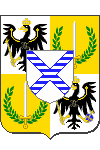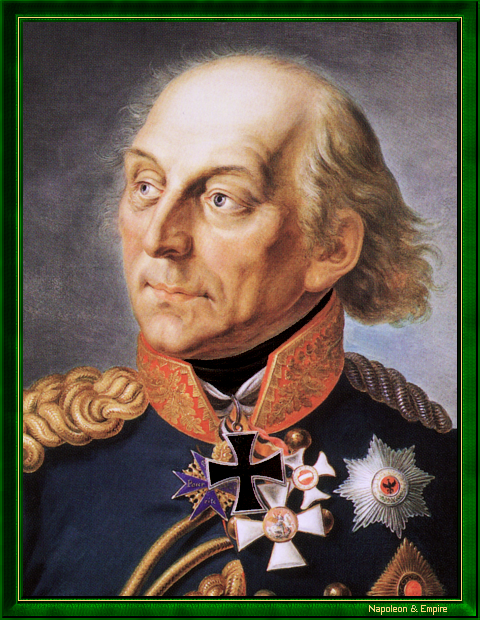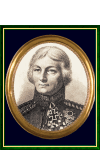Ludwig Yorck
Count of Wartenburg, Grand Cross of the Order of the Iron Cross
Pronunciation:

Johann David Ludwig York was born in Potsdam on September 26, 1759, into a family of Kashubian descent. His father, born David Jonathan Jark von Gostowski, was an infantry captain in the army of Frederick the Great.
Following his father's example, young Ludwig joined a Prussian infantry regiment at the age of thirteen, becoming second lieutenant in 1777.
Incarcerated for insubordination in 1780 during the War of the Bavarian Succession, he was unable to rejoin the Prussian army after the war, and joined the army of the United Provinces.
In 1782-1783, he fought alongside the French against the English in Cape Town (now South Africa), before rejoining the Prussian army in 1786.
Promoted to captain by Frederick William II in 1787, he became senior officer in 1792, battalion commander in 1795 following the Battle of Poland, major in 1799, colonel in 1805.
He fought against the French under the Duke of Weimar, then, defeated, joined Gebhard Leberecht von Blücher. Taken prisoner in Lübeck in November 1806, he was exchanged for a French general the following spring, and joined King Frederick William III, who had taken refuge in Königsberg (now Kaliningrad), where he was made a general and awarded the Order of Merit.
In 1809, he became military governor-general of West Prussia and East Prussia as part of the Confederation of the Rhine, a political entity allied with France.
In 1812, Yorck commanded the Prussian auxiliary corps sent to assist Napoleon I in the French Invasion of Russia, and was placed under the command of Marshal Etienne Macdonald. On December 30, 1812, however, he took the initiative of signing a truce at Tauroggen with the Russian general (of German origin) Hans Karl Friedrich Anton von Diebitsch und Narden. This betrayal, which marked the beginning of Prussia's reversal of alliance against Napoleon I, was applauded by Prussian nationalists (many of whom, such as Carl Philipp Gottlieb von Clausewitz, had already joined the Russian imperial army, unhappy with the vassalage France had imposed on their country in 1807 with the Treaty of Tilsit).
Prussia's King Frederick William III initially disavowed Yorck, dismissing him from his commands and even court-martialing him; two months later, he changed his mind and definitively sided with Russia on the occasion of the Treaty of Kalisz; Yorck, freed, triumphantly entered Berlin with his troops.
In 1813, Yorck covered Blücher's retreat after the battle of Bautzen, fought at Katzbach, then distinguished himself on October 3 at Wartenburg, Saxony, where with Blücher he defeated general Henri-Gatien Bertrand. This victory earned him the title of Count of Wartenburg and the rank of infantry general from Frederick William III, and the Order of St. George from Tsar Alexander I.
In 1814, Yorck took part in the campaign in Northeast France, fighting alongside the Russians at Montmirail, defeating Napoleon's army at Laon, and finally entering Paris on March 30, for which he was awarded the Grand Cross of the Order of the Iron Cross.
During the 1815 campaign, he took no part in the fighting, remaining at the head of the V Corps in reserve on the Elbe. His military career was crowned in 1821 by his appointment as Field Marshal.
Ludwig Yorck died on October 4, 1830 at his estate in Kleinöls, near Breslau in Silesia.
"Ludwig Yorck von Wartenburg" by Ernst Paul Gebauer (Lietzen 1782 - Berlin 1865).

A statue of Field Marshal Yorck honors his memory in Berlin's Unter den Linden district, and a street in the city bears his name (Yorckstraße).
Other portraits

"Ludwig Yorck von Wartenburg". Engraving of the nineteenth century.